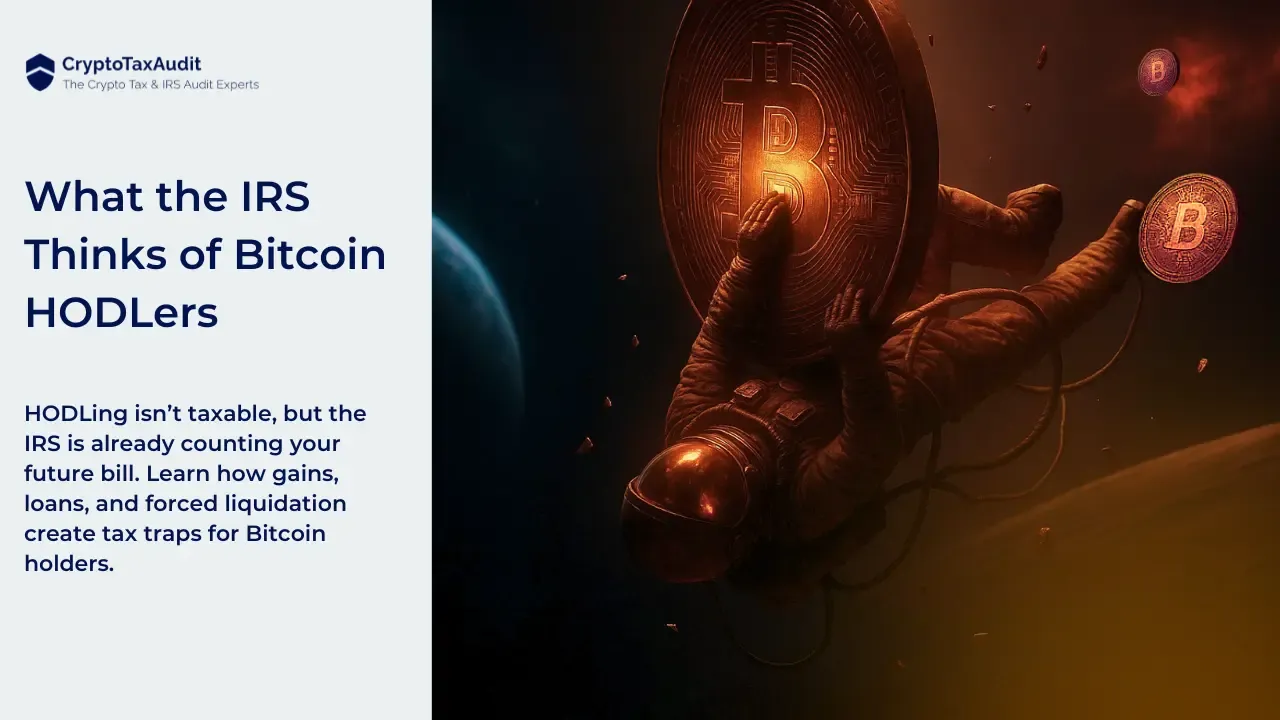
Could moving to Puerto Rico help save taxes from crypto gains? Based on the current interpretation of the law, Puerto Rico can help U.S. taxpayers pay less tax.
Is Puerto Rico a U.S. crypto tax haven?
FinCEN, the U.S. Financial Crimes Enforcement Network, regulations reveals a loophole and creates an opportunity for Puerto Rico crypto exchanges to transform the entire US crypto industry.
If you are an American crypto owner looking for the opportunity to report no income to the United States or on FBAR forms, then this is the article for you. Imagine not being responsible for taxes on capital gains received from yor crypto investments!
You may have recently seen that FinCEN released a notice regarding foreign financial accounts reports to include virtual currency. Like many crypto owners, you may have felt frustrated by what appeared to be yet another example of increased regulation on crypto activity. However, the point to focus on here is that this notice was the first time we've ever seen a formal statement that the FBAR form currently does not require the reporting of cryptocurrency.
This admission by FinCEN is significant for all crypto ownersThis notice is the first time we've ever seen a formal statement that the FBAR form, or report of Foreign Bank and Financial Accounts, currently does not require cryptocurrency reporting. It's the first time it's ever been said. I don't think this was their focus, and may not have been what they intended to do with this notice, but it is what was communicated.
With this notice, everybody who didn't file FBARs for crypto in the past is now safe. This FinCEN notice is a significant admission, and it may have even been a mistake. Furthermore, such a notice is not legally binding in court. But since the notice came from FinCEN as an official notice, and FinCEN officially sent notification that the reporting of cryptocurrency is not required on their own paper, it is a significant admission.
Back inFebruary 2020, the U.S. Government Accountability Office (GAO) said that both the IRS and FinCEN needed to clarify whether cryptos need to report on the FBAR. At that time, FinCEN didn't come out and say whether cryptos needed to be reported on the FBAR. See the GAO document here.
In my opinion, FinCEN inadvertently slipped up and confessed reporting was not required in the past. However, having made that slip up in the past doesn’t mean we shouldn’t be filing the FBAR for past years. It is our position that it is better to be safe than sorry, and to over report rather than to under report and risk penalties and a potential audit.
This first-time admission may not have been FinCEN's intention by issuing this notice, but it could lead to several exciting opportunities. In fact, some of the oversights discussed below could create a massive tax loophole for Puerto Rico crypto residents. Before we dive into this further, let's first begin with an understanding of the FinCEN Notice 2020-2.
Understanding FinCEN Notice 2020-2.
This notice says that FinCEN is looking to include virtual currency as a type of reportable account under 31 CFR 1010.350, which is a section of the federal regulations, and is the piece of the law that refers to the FBAR form.
FinCEN intends to propose to amend the regulations implementing the Bank Secrecy Act (BSA) regarding reports of foreign financial accounts (FBAR) to include virtual currency as a type of reportable account under 31 CFR 1010.350.

Some definitions.
What is FinCEN?
The Financial Crimes Enforcement Network (FinCEN) was established in April 1990 by Treasury Order Number 105-08 and is one of Treasury's primary agencies to oversee and implement policies to prevent and detect money laundering.
What Is The FBAR?
The FBAR is a FinCEN form that the IRS administers. As you know, the Internal Revenue Service (IRS) is the U.S. government agency responsible for collecting taxes and enforcing tax laws. The FBAR form is the short name for the Report of Foreign Bank Accounts and Financial Accounts. This form is also called FinCEN Form 114.
The FBAR form has been a requirement for individuals to complete since 2004. On this form, the taxpayer lists the maximum balances of their foreign financial accounts during the year. The Bank Secrecy Act (BSA) is U.S. legislation that is designed to prevent criminals from using financial institutions to hide or launder money.
Crypto Tax Tip: Good crypto tax advice is that you should always err on the side of over-reporting when filing the FBAR form.
What do current FinCEN regulations tell us?
Currently, the Report of Foreign Bank and Financial Accounts (FBAR) regulations do not define a foreign account holding virtual currency as a type of reportable account.
Reviewing the current regulations reveals some exciting opportunities with the rise of decentralized exchanges, which is a cryptocurrency exchange that operates in a decentralized way without a central authority and no single place of existence.
The current regulations suggest that decentralized exchanges will be treated as foreign exchanges because they are not created, formed, or organized in the United States. It defines foreign countries, including all geographical areas located outside the U.S. meaning their definition of what it means to be foreign is geographically located outside the U.S.
But a decentralized exchange has no geographical existence anywhere. It is what they call a Distributed Autonomous Organization (DAO), and the main idea behind DAO’s is establishing a company or an organization that can fully function without hierarchical management.
In crypto, we talk about these (DAO) organizations being autonomous, so this contradiction will challenge the whole definition of what foreign is regarding the FBAR. FinCEN is probably going to have to define DAOs as foreign, yet at the same time, they exist, in a sense, inside the United States.
When we talk about geography, we're talking about physical things, physical locations. Still, when we talk about Decentralized Autonomous Organizations (DAO), we are talking about organizations that exist nowhere, yet everywhere, at the same time. They are ubiquitous.
This will create some interesting challenges in how they write the law, and at the same time, it might create some interesting loopholes.
Current FinCEN regulations expose loopholes.
The opportunity here lies in FinCEN's current definition of the U.S. The current FinCEN regulations reference a definition of the United States that reads like this:
31 CFR 1010.350(b)(3) defines a foreign entity as one created outside the United States. The United States is defined as "The States of the United States, the District of Columbia, the Indian lands (as that term is defined in the Indian Gaming Regulatory Act), and the Territories and Insular Possessions of the United States."
What does this FinCEN definition mean for Indian land?
How does that begin to expose a loophole? This definition could be explored as defined in the Indian Gaming Regulatory Act, and it is exciting. Could this FinCEN definition also mean that we may see a rise in Indian crypto exchanges on Indian land, just as we've seen with the explosion of Indian casinos? (By Indian, in this sense we are talking about so-called American Indians, as defined in U.S. law, the natives of the land that settled prior to the European and other settlers.)
What is CFR 1010.350?
31 CFR 1010.350 is the regulation requiring the FBAR form, and it defines an entity outside the United States.

What defines the United States?
What defines the U.S. in these FinCEN regulations, and how does that include Puerto Rico?
The United States includes Indian lands as defined in the Indian Gaming Regulatory Act and the territories and possessions of the United States, such as Puerto Rico. As defined in these FinCEN regulations, territories include America's tax haven, Puerto Rico.
Puerto Rico's Act 60 is where capital gains on cryptocurrencies are 0% for Puerto Rican residents.
Puerto Rico crypto exchanges could transform the industry.
Depending on how FinCEN changes the regulation, there may be a considerable opportunity for all Puerto Rican crypto exchanges. The opportunity is this: no income needs to be reported to the United States or on FBAR forms. This opportunity could create a massive crypto tax loophole.
Could the rise of Puerto Rican crypto exchanges transform the U.S. crypto industry? Or perhaps it could lead to the rise of Indian crypto exchanges like the Indian casinos?
Does the tax loophole exist now?
Is the loophole there now, or are we waiting for the new FinCEN regulation changes?
If FinCEN simply adds the intended notice to 31 CFR 1010.350 (c) under foreign accounts within the types of reportable accounts, and that's all they do, it will create all sorts of problems with decentralized exchanges.

Under 31 CFR 1010.350 (b), it defines what a U.S. person is. That is where the definition referred to in this article is coming from.

If all they do is jam it in under reportable accounts, which is what it said in that notice, they're going to add a report type of reportable account with virtual currency (digital asset).
Has this FinCEN notice taken effect?
No. it has not. This recent notice did not have a timeline for the proposed amendments or when they may go into effect. As for now, this FinCEN notice only states that they intend to change the regulation. However, they haven't actually changed them yet.
What should we watch for?
Some interesting things to watch out for include:
- How will FinCEN define virtual currency (digital assets)?
- How will FinCEN redefine a foreign country?
Why? Because while decentralized exchanges are DAOs and don’t exist in any country, they are still obligated to report them.
How will FinCEN define an account?
How will they define a financial account and how does that apply to crypto wallet addresses?
When we are talking about cryptocurrency, ultimately, we are talking about addresses on blockchains. The blockchains themselves are distributed in autonomous operations. The law is talking about tangible accounts and intangibles at the same time.
What's next?
It's all very interesting. So we're watching to see what FinCEN does. We don't know what they are going to say, but it's going to require them to redefine what foreign means if they want to include decentralized, autonomous organizations.
DISCLAIMER: Opinions and perspectives of the author, host, and guests. It should not be construed as U.S. taxpayer advice. There are often multiple interpretations of tax law. Various strategies may be suited to specific individuals and for particular situations. Seek out professional tax, legal, or financial advice from CryptoTaxAudit or from other reputable companies.





